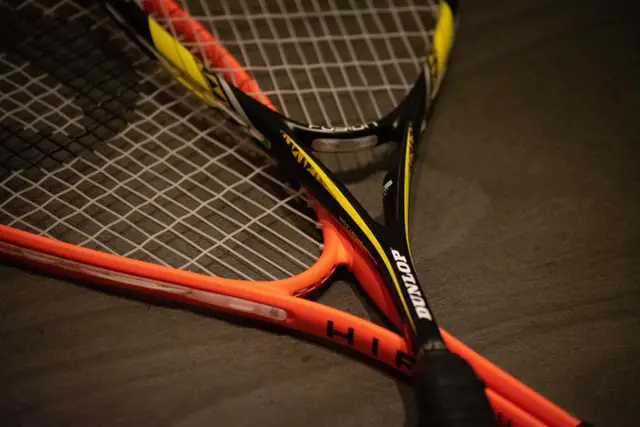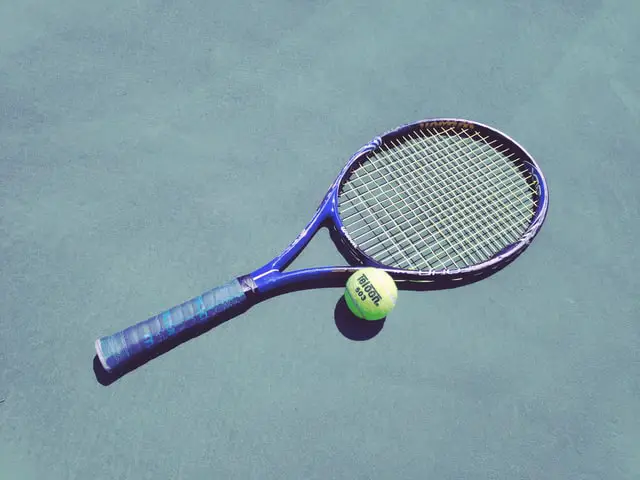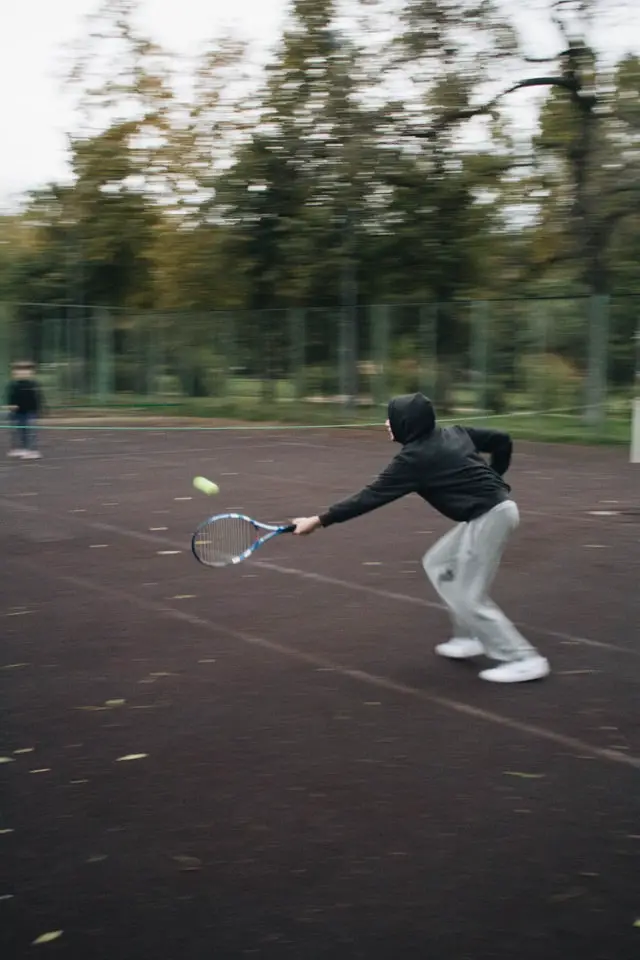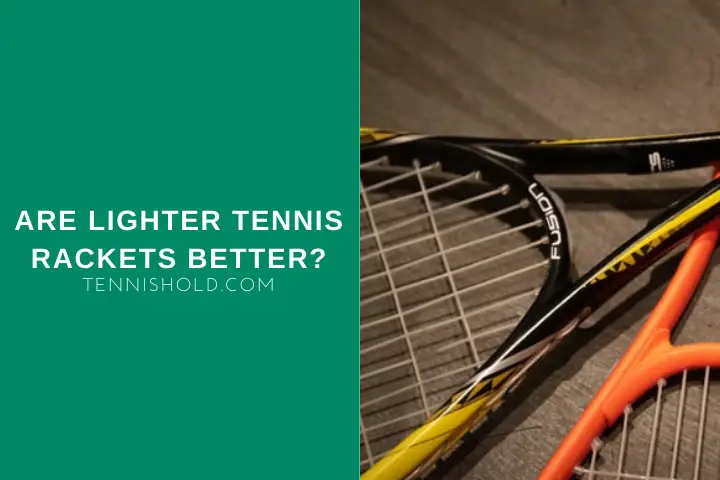When you watch tennis on TV, it looks so easy and smooth. Each swing almost makes us believe that the racket is an arm extension.
It can’t be difficult at all!
The truth is, it requires lots of skills and strength. Depending on tennis level and body building, players use lighter or heavier rackets. If you once tried a random racket, you know how difficult it is to play.
Generally, light tennis rackets are better for juniors, beginners, or recreational players. However, lighter doesn’t mean worse or less advanced. The reason why professional tennis players usually choose heavier frames is the power they can generate.
If you wonder which racket is better for you, you have to think about your preferences, technique, and abilities.
Stick to the rule: the better player you become, the heavier racket you might need. And at the end, choose the racket that makes you feel best on the court.
For inexperienced players, lighter or heavier doesn’t change much. But for professionals, it is a real game-changer.
Here is why tennis rackets differ in weight. Take a look at the pros and cons of light and heavy tennis rackets.
The Difference Between Light And Heavy Tennis Rackets

Light tennis rackets weigh up to 285g, while heavy ones start from 325g. Some of the best players like Federer or Djokovic go beyond that to more or less 350g.
Why is weight such a concern?
Two words are enough to describe it: control and power.
Starters will learn basic techniques way faster with a light racket in hand. They can swing it earlier and react better to incoming balls. Such a frame is more controllable.
Most light rackets have relatively bigger heads and sweet spots. Wider contact surface helps to avoid mis-hitting errors and play quite good tennis even at the first time.
Lighter tennis rackets are more maneuverable. You can still react, swing, and control the ball nicely without strong muscles.
Meanwhile, the biggest advantage of heavy rackets is their powerfulness.
There is no need to take a very big back-swing to hit bullet-balls towards your opponent. But how does racket weight affect it?
Try to imagine a football player and a small child kicking the ball. I don’t think we have to wonder who would win this ‘who-kicks-further’ competition. Bigger leg mass makes a big difference.
Besides that, heavier rackets tend to absorb more shocks on impact with a light ball. Looking at the speed and intensity of play, it is a critical factor to prevent injuries.
Many players admit using a heavy racket brings better stability feeling on the hit.
Which racket then, lighter or heavier, is better?
Both and none. A tennis racket has to be adjusted to the player.
Its price relates only to target clients.
For example, professional rackets are always very expensive, whether you want a regular or light version. However, identical models for junior players can be a little cheaper.
Are Lighter Tennis Rackets For Beginners Only?

No, they are not. Lighter tennis rackets are for anyone. Go to the nearest tennis club and pay attention to who plays with what racket.
Beginners, women, youths, seniors, and coaches choose light rackets for various reasons.
If you are a beginner, you want to learn and have fun quickly. Light rackets allow you to rally from the very first session and be consistent even with poor technique.
Junior players who compete in tournaments need the most advanced equipment but cannot handle regular sizes and weights yet. Almost every professional racket has its junior model so youngsters could show their full potential too.
Light rackets are ideal for tinier women since they can play effectively enough without bigger physical effort.
There is an essential aspect of using these rackets in oversize versions by senior amateurs. The larger head provides more power and spin and fewer off-center shots with unchanged effort. The risk of the elbow or arm injury increases with age, so this is a perfect solution for them to avoid overloading.
It is similar to coaches who hit thousands of balls daily and want to decrease stress.
On the minus side, light tennis rackets offer less stability and power than the heavier ones.
Also read: Is There A Difference Between Men’s and Women’s Tennis Racket?
Are Light Tennis Rackets Easier To Control?

If you compare light and heavy racket you’ll notice how easy it swings with less weight.
You can cheat your perception and start playing with a heavier frame and switch it for a lighter one during practice. It will feel like a feather in your hand.
It is much easier to control the light racket.
You can get more acceleration on the racket head to create more spin on the ball. For example, children under 10 years old can already play excellent topspin strokes like pros.
There is one thing to remember. With these rackets, it is a challenge to play very powerfully. Back-swing generally should be bigger and swings harder to produce ball speed, similar to with heavy rackets.
Do Pros Use Light Tennis Rackets?
Do you recognize which rackets do pros use? The brand doesn’t really matter. Weight is far more superior factor that brings them all together.
Professional tennis players, are constantly looking for a balance between control and power. All professional players have nailed the technique, so for this reason, they favor power.
Since they easily control the ball and hit precisely, the power of strokes determines champions.
Although the manufacturers offer different racket weights, you can still make it heavier using specific tapes.
The bottom line is, light tennis rackets are rarely used by pros, but there are always exceptions to the rule.
Final Words
Tennis racket weight has nothing to do with its quality or functionality within the same model. The heavier you choose, the more demanding it is in general.
Light rackets are very useful for the first stages of learning in children and novice players.
Lower physical parameters allow preventing overloading and injuries. Some elderly players and coaches could say some very convincing words about it and how beneficial it is.
But is a lighter tennis racket better than a heavier one?
I don’t think so.
In some cases, it is more functional and valuable, though, as heavy rackets are more complex and satisfying for more demanding players.
How do you find playing with lighter rackets?
Do you find control more important than power in strokes?

